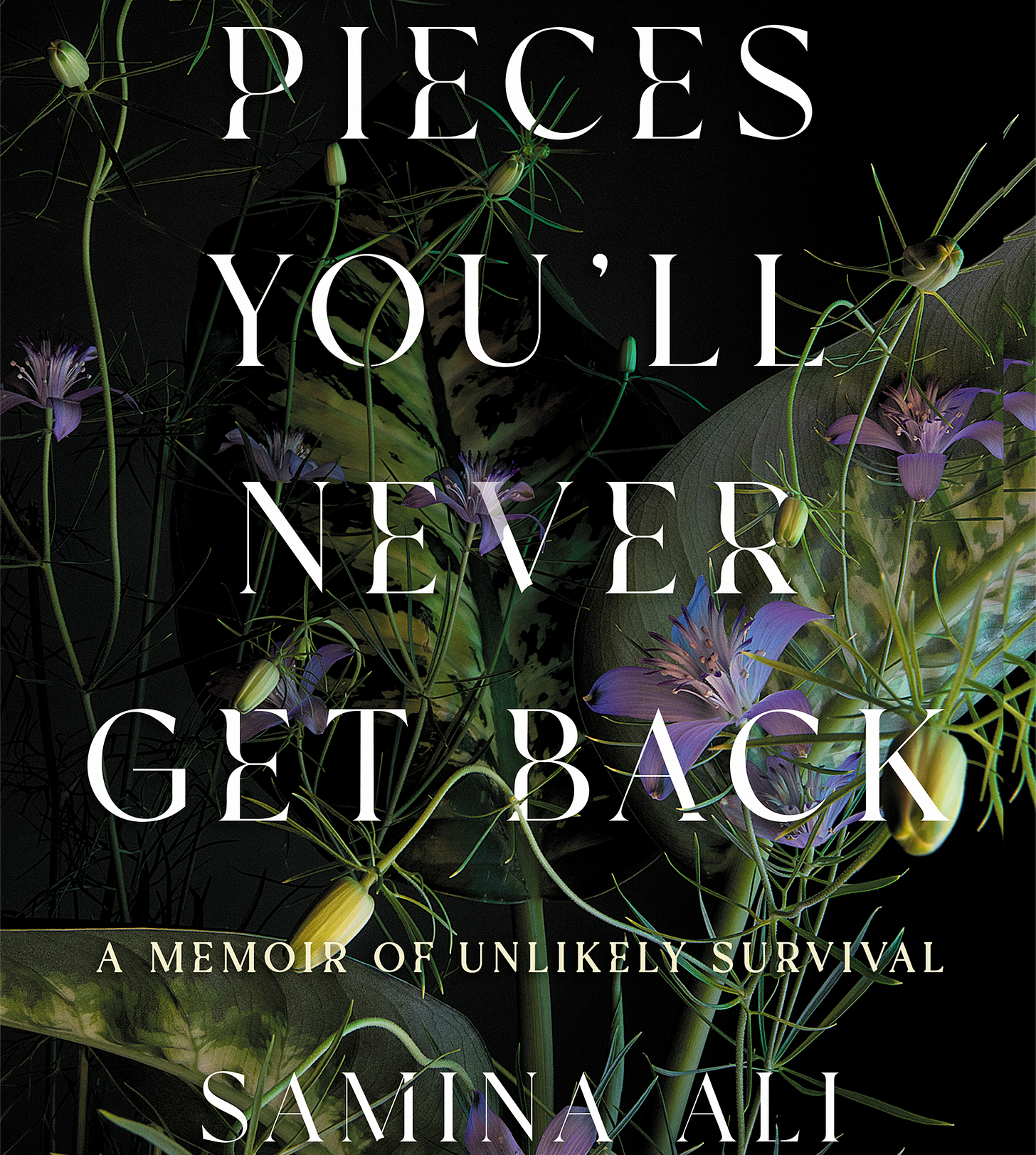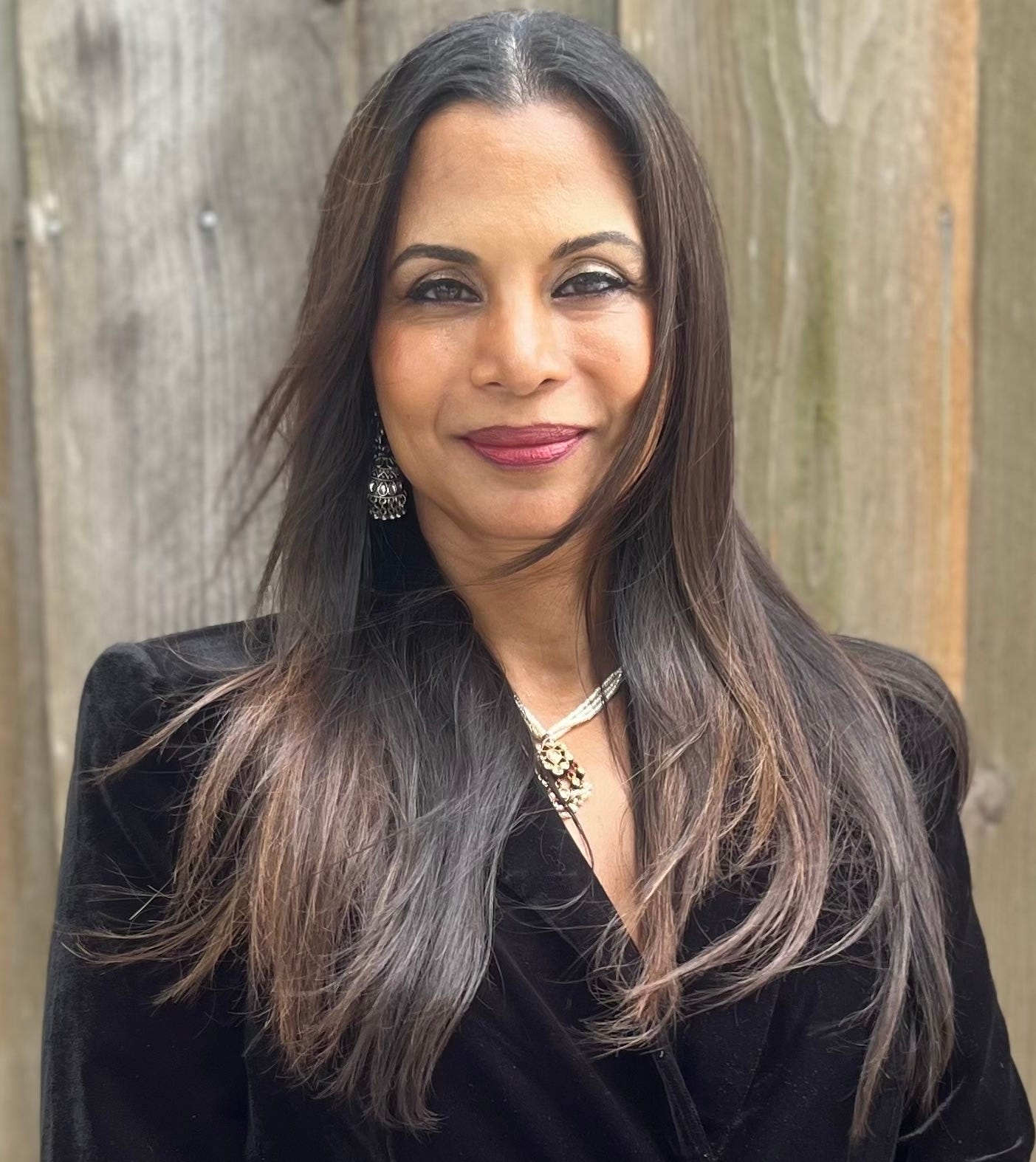Diaspora Dialogues: Writer Samina Ali on Faith, Memory, and Motherhood
From debut novelist to ‘Miracle Girl,’ Ali reflects on faith, survival, and the complexities of Muslim American womanhood
When I was in college, Madras on Rainy Days—the debut novel by Indian American author Samina Ali—gut-punched me. The book follows a young Muslim American woman’s sexual awakening as she struggles to reconcile desire, faith, and cultural identity. Stories about Muslim South Asian Americans were rare in 2004, and one so frank about sexuality and immigrant life was almost unheard of. Ali’s prose also opened a spiritual world of Islam I’d never encountered—its mysticism, its Sufi currents. I devoured the novel and waited eagerly for her next. Then she disappeared. I even messaged her on Facebook, asking where she had gone.
I found my answer in her new memoir, Pieces You’ll Never Get Back, released earlier this year. While her first book was fiction drawn from her own young marriage, this memoir is a raw, unflinching account of the catastrophic medical crisis she faced after giving birth to her son. Ali developed HELLP syndrome, a deadly pregnancy complication, and twenty minutes after delivery suffered a grand mal seizure that cut off oxygen to her brain. She fell into a coma, her brain swelling, and doctors doubted she would survive. When she awoke days later, they called her “Miracle Girl”—but she didn’t recognize her husband, know she was in a hospital, or remember giving birth. In spare, lyrical chapters, Ali chronicles her painstaking journey to rebuild a fractured identity as a mother living with brain damage.
In this week’s Diaspora Dialogue, I talk with Ali about faith, identity, and growing up Muslim and South Asian in the U.S., the pull of family and tradition, and the ongoing challenges of anti-Muslim sentiment in the diaspora.
You grew up between India and the U.S., constantly navigating cultures. How did that shape the way you understood Islam?
Samina: My parents emigrated from Hyderabad in the early ’70s. They were very traditional Muslims, but their version of Islam had already absorbed centuries of Indian influence—Hindu rituals, local customs. In India, brides wear red, the wedding lasts days, each day with its own color. All of that comes from Hindu culture. In contrast, in the Middle East, brides often wear white.
When my parents brought this Indian Islam to Minnesota, they were terrified we’d become “too American”—stop fasting, stop praying, marry outside the community. So every year my father sent me back to India. I grew up bicultural, with one foot in Catholic school here, one foot in Islamic schools there. That gave me a deep awareness that Islam is not one monolith.
Growing up Muslim and South Asian, I also felt that dual pull. So much of Hindu culture seeped into our everyday lives—food, rituals, language—yet at home my family was always saying, we don’t do that because we’re not Hindu. Now I see something different happening: what I call “Arabization” in South Asian Muslim communities where we are beginning to reject our cultural roots. Do you notice that?
Samina: Absolutely. It’s complicated because Muslims are minorities in both countries. In India, Muslims face increasing discrimination under Modi. In the U.S., we’re celebrated as the “model minority” when we’re Indian professionals—but as Muslims, especially since 9/11, we face hostility.
I dislike the word Islamophobia. It sounds like arachnophobia, like people are just “afraid.” What we’re really facing is systemic discrimination and violence. Antisemitism is a powerful, precise word. We need something like that for Muslims too.
At the same time, yes—there’s pressure in diaspora toward a singular, “authentic” Arab Islam. But historically, Islam has thrived because it adapted. Indian Islam looks different from Indonesian or Chinese Islam. That diversity is its richness.
Before 9/11, the slurs I got in school were “Hindu” or “bindi”—it didn’t even make sense. After 9/11, suddenly, I was claimed as part of the Muslim community, even by those who had once othered me. That was disorienting. And then reading your new book—I was floored by how you opened it, with your son, and the Biblical and Quranic story of Abraham sacrificing his first born. It felt like such a powerful invocation of lineage and faith. What made you start there?
Samina: The book is about medical neglect, yes, but underneath it’s about connection. When my brain ruptured, I had to piece myself back together. And in that process I realized: what matters most isn’t identity labels—Muslim, Indian, American—but being human, being connected. Opening with lineage was intentional. It situates the story in something larger than myself.
As I was reading, I kept thinking that this book is as much about motherhood and creativity as it is about survival.
Samina: Exactly. A lot of coverage reduces it to “medical trauma.” But I wanted readers to see how creativity, faith, and motherhood intersect. When you’ve had one foot in the grave and you come back, your priorities shift. The question becomes: how do you live fully again?
You describe how in South Asian culture, if we drop a pen or book, we kiss it. That sense that knowledge itself is sacred.
Samina: Yes. And in our communities, debate itself is sacred. We grow up arguing back to scripture, analyzing, interpreting. That training is a kind of intellectual rigor we carry into our art.
Your writing has always been unapologetically specific—whether about sexuality in your first book, or the intimate details of your recovery now. How do you fight the pressure to generalize, especially as a Muslim writer in America?
Samina: It’s a constant tension. The more specific I am, the more universal it becomes. But because I’m Muslim in post-9/11 America, specificity also matters for another reason. If I’m not clear that I’m speaking for myself, people assume I’m speaking for all Muslims. And within the Muslim community, too, there’s scrutiny—constant watching of what others say.
That’s why I remind myself. This is memoir. It’s not a journalistic report. I’m not writing about you, I’m writing about me.
Memory is central to your book. But you were writing about a time when your memory itself was fractured. How did you approach that?
Samina: I interviewed doctors, combed through medical records, asked family to fill in gaps. Brain trauma is strange: you don’t know how impaired you are, because your brain protects you. What lingers are emotional flashes—fear, shame, rejection. That’s why so many of us carry negative self-stories. The work is to recognize them and rewire the brain toward new ones.
Your book also touches on divorce. That felt revolutionary—because in South Asian communities, it’s so stigmatized. As I went through my own divorce, I found those chapters both painful and affirming.
Samina: It was terrifying at first. My mother was devastated; she couldn’t accept it. My father, though, told me, “You need a fresh start. I support you.” Once I finally left, I felt relief within days.
A therapist once told me divorce is like undoing a quilt—every date, every memory, every shared moment is a stitch. You have to unravel them one by one. It takes time, but eventually the fabric comes apart and you can start anew.
That metaphor captures it so well. And it circles back to something we’ve been circling in this whole conversation: how do we live, create, and love within communities that silence parts of us?
Samina: By telling the truth of our own lives. Even if people don’t like it. Even if they push back. That’s the work.
Order Pieces You’ll Never Get Back here.
Interview has been edited for length and clarity.




This needs a big big platform
Madras was eveything.
Great interview Jennifer, really enjoyed it. So interesting you mention how some cultural practices in Islamic countries are based on Hindu tradition, I've noticed that too. I'm Muslim but had a gaye holud, which is based on Hindu tradition. We really aren't that different. I really want to read Samina's memoir now, added to my to-read list!